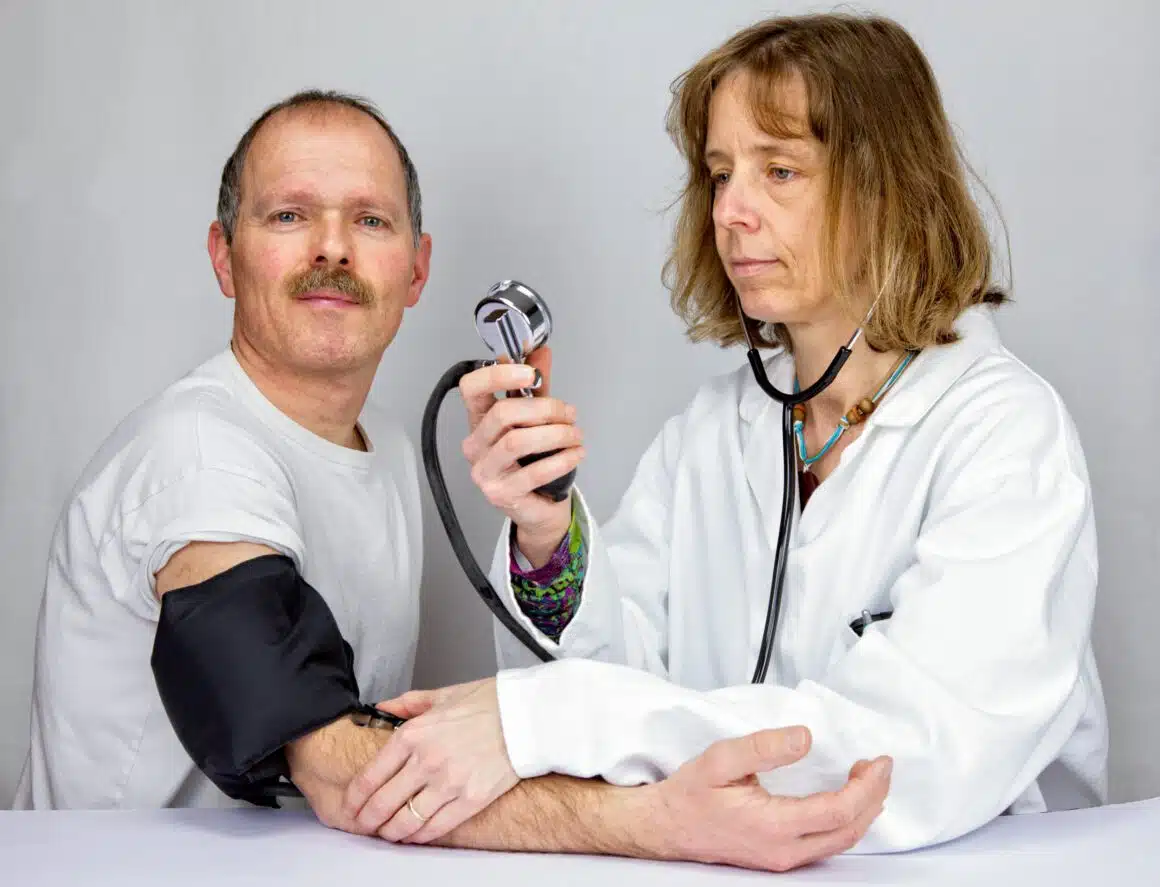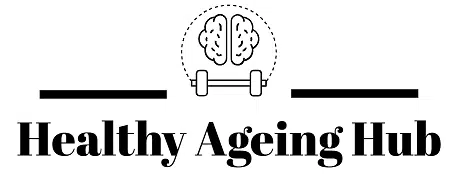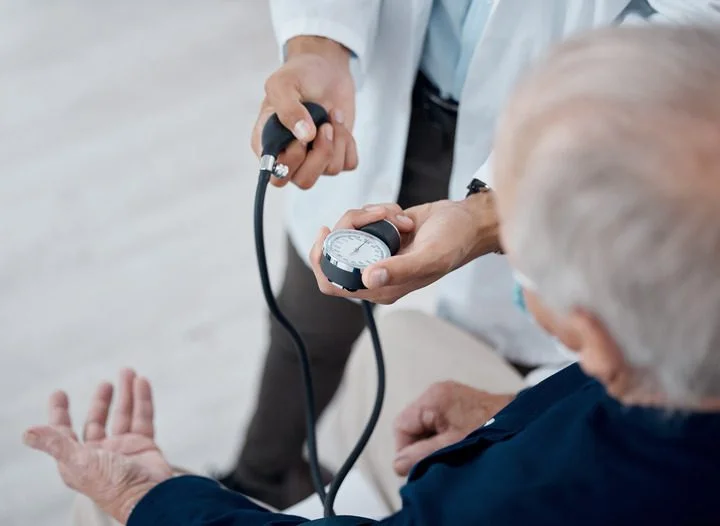Introduction
As we age, our bodies undergo significant changes, making regular health screenings crucial for maintaining optimal well-being. For those over 50, certain essential tests can detect early signs of chronic conditions and help prevent more serious complications down the road. In this blog post, we will discuss five vital health screenings that everyone above 50 should consider incorporating into their routine healthcare plan: blood pressure checks, colorectal cancer screening, cholesterol checks, bone density tests, and blood sugar screening.
Key Takeaways
- Regular Health Screenings For People Over 50 are crucial to detect potential health issues early and prevent more serious complications down the road.
- The five essential health screenings everyone above 50 should consider incorporating into their routine healthcare plan include blood pressure checks, colorectal cancer screening, cholesterol checks, bone density tests, and blood sugar screening.
- Women over 50 should also undergo regular cervical and breast cancer screenings as well as osteoporosis screening while men over 50 should prioritize prostate cancer screening.
- Making healthy lifestyle choices like balanced diets and exercise can greatly impact overall wellbeing at any age.
Importance Of Health Screenings For People Over 50
As individuals enter their golden years, the importance of regular health screenings cannot be overstated. Staying on top of one’s medical wellbeing is crucial for maintaining a high quality of life and detecting potential issues early, allowing more time for treatment and intervention.
For example, many people aged 50 to 64 have at least one chronic condition; preventive checkups are not up to date for many adults in this age group (Important Fact 9).
Health screenings can detect several common ailments affecting older adults, such as hypertension, prediabetes, type 2 diabetes, osteoporosis, lung cancer and skin cancer (Important Fact 8).
Early detection through blood pressure checks or cholesterol profile tests can help prevent cardiovascular disease while having routine colorectal cancer screening may discover precancerous growths before they turn dangerous.
| Screening | Age to Start | Frequency |
|---|---|---|
| Blood Pressure | 18 years | Every 2 years (or more if high risk) |
| Cholesterol | 20 years | Every 4-6 years |
| Colorectal Cancer | 45 years | Every 10 years |
| Bone Density | 65 years (women) 70 years (men) | Every 2 years (women) Once (men) |
| Blood Sugar | 45 years | Every 3 years |
Moreover, addressing lifestyle choices plays an equally vital role in maintaining overall health after turning fifty. Physical exams should include assessments of body mass index (BMI), depression and anxiety levels while discussing diet and exercise habits with healthcare providers ensures that individuals stay ahead of any risks related to weight management or mental wellbeing.
Doctors can also provide guidance on alcohol consumption limits and tobacco use cessation strategies if needed as part of the health screenings for people over 50.

5 Essential Health Screenings For People Over 50
Get to know the five essential health screenings that people over 50 should prioritize and take a step towards ensuring their overall well-being.
Blood Pressure Check
Blood pressure checks are one of the five essential health screenings for people over 50, as recommended by the US Preventive Services Task Force.
High blood pressure increases your risk of cardiovascular disease, which is a leading cause of death in the United States. 1 in 3 adults over 50 have high blood pressure.
A simple and non-invasive procedure, getting your blood pressure checked at a doctor’s office or even at home should be a priority. For adults without comorbidities or cardiovascular disease, an ideal reading falls below 130/80 mm Hg.
It’s important to have this screening every three years if you’re healthy and in your 60s; however, more frequent checks may be necessary if you’re at risk for hypertension or other chronic conditions.
In addition to consistent monitoring, implementing lifestyle changes such as adopting healthier diets and incorporating regular exercise can significantly lower your blood pressure level, subsequently reducing your risk of developing cardiovascular diseases.
Colorectal Cancer Screening
Colorectal cancer health screenings for people over 50 is a vital preventive measure, as early detection increases treatment success rates and can even prevent the development of cancerous growths.
This type of screening looks for any abnormal cells or polyps in your colon and rectum that may eventually become cancerous if left untreated.
For individuals over 50 with average risk factors, it’s recommended to undergo a colorectal screening every ten years – but those with higher risk factors (such as the family history of colorectal cancer or personal history of inflammatory bowel diseases like ulcerative colitis or Crohn’s disease) may require more frequent screenings.
Regardless of your specific risk profile, it’s essential to discuss the appropriate test frequency and method with your healthcare provider. 71% of colorectal cancer cases occur in those over 65.
Cholesterol Check
A cholesterol check is an essential health screenings for people over 50 that should be a part of every routine check-up. Cholesterol contributes to the buildup of blockages in arteries, which can lead to heart attacks and other serious cardiovascular diseases.
It’s recommended that adults have their first cholesterol test at age 20 and then every four to six years afterward. For those with known risk factors such as coronary heart disease, regular screenings should begin at age 45 or earlier.
Your doctor will check your total cholesterol levels, including HDL (the “good” kind) and LDL (the “bad” kind), as well as triglycerides.
Bone Density Test
As we age, our bones become weaker and susceptible to fractures. That’s why it’s important for people over 50 to undergo a bone density test. Over 53 million Americans have osteoporosis or low bone density. A dual-energy X-ray absorptiometry (DXA) scan is the most common test used to check bone density.
Women should start getting tested at age 65, and earlier if there is a family history of osteoporosis or fractures. Postmenopausal women have a high risk of osteoporosis-related fractures, with half being affected.
Regular bone density testing can help monitor the effectiveness of treatment and prevention strategies such as adequate calcium and vitamin D intake, regular weight-bearing exercise, and avoiding smoking and excessive drinking.
Blood Sugar Screening
Another one of the five essential health screenings for people over 50 is blood sugar screening. High levels of blood sugar, if left unchecked, can lead to diabetes and increase the risk of heart disease, stroke, and kidney disease.
Regular blood sugar screenings are crucial in detecting early signs of diabetes or prediabetes.
The recommended frequency for blood sugar screenings may vary depending on an individual’s medical history and risk factors. A fasting plasma glucose test, A1C test, or oral glucose tolerance test may be recommended for this type of screening.
It’s worth noting that these tests can help identify prediabetes as well – a condition where blood sugar levels are higher than normal but not yet within the range for diabetes diagnosis.
Additional Health Screenings For Women Over 50
Women over 50 should also undergo regular cervical cancer and breast cancer screenings, as well as osteoporosis screening to assess their bone density.
Cervical Cancer Screening: Pelvic Exam And Pap Smear
Cervical cancer screening is an essential health screening for women over 50. The primary method of detection for cervical cancer is through a pelvic exam and Pap smear. A pelvic exam involves the examination of the reproductive organs, while a Pap smear collects cells from the cervix to test for abnormalities that may indicate pre-cancerous or cancerous cells.
Women should begin cervical cancer screening at age 21 and continue with regular checks until age 65, especially if there are risk factors such as HPV infection or a family history of cervical cancer.
Regular screenings can detect precancerous changes early on when treatment options are more effective.

Breast Cancer Screening: Mammogram
Mammograms are a vital screening test for women over the age of 40, as they can detect breast cancer early when it’s most treatable. Women with a family history of breast cancer may need to start getting mammograms earlier or have them more frequently.
During a mammogram, an x-ray machine takes images of the breasts which are examined for any lumps or abnormalities. Although mammograms can be uncomfortable, they only take a few minutes and could potentially save your life by detecting breast cancer at an early stage.
Osteoporosis Screening
Osteoporosis screening is an essential health test for women over 50 as it helps to determine their bone density and the risk of fractures.
A DEXA scan, which measures bone density, is a common screening method used by healthcare providers to assess the health of bones. Women with osteoporosis may require medication to prevent fractures and improve their bone density.
It’s important to note that maintaining good nutrition and exercising regularly can also help reduce the risk of osteoporosis.
Additional Health Screenings For Men Over 50
Men over 50 should also consider getting a prostate cancer screening, which can include a PSA test and digital rectal exam (DRE), as well as a testicular exam.
Prostate Cancer Screening
Men over the age of 50 should undergo regular screening for prostate cancer. The American Cancer Society recommends that men talk to their doctors about when and how often they should be screened.
Prostate cancer screening includes a digital rectal exam and testicular exam.
Early treatment of prostate cancer has a high survival rate of almost 100%. Regular screenings can help detect this type of cancer early on, increasing chances for successful treatment and recovery.
The National Institute of Health recommends regular prostate cancer screening for African American men above 50 years or those with a close relative who has prostate cancer.
It’s important to continue these screenings in your 60s as well.
How To Prepare For Health Screenings For People Over 50
Preparing for health screenings is important to ensure accurate results and a positive experience. Here are some tips for preparing for your health screenings:
- List any medications or supplements you are taking, including the dosage and frequency.
- Bring a list of any symptoms or concerns you may have with you to discuss with your healthcare provider.
- Wear comfortable clothing that allows for easy access to the area being screened, such as loose-fitting clothing for blood pressure checks or a gown for mammograms.
- Follow any specific instructions your healthcare provider provides, such as fasting before a cholesterol check or bowel preparation before a colonoscopy.
- Inform your healthcare provider of any medical conditions or allergies you may have before the screening begins.
- Arrive at the screening on time and with any necessary paperwork or insurance information.
By taking these simple steps, you can help ensure that your health screenings are successful and informative. Remember, early detection through regular screenings can lead to better outcomes and improved quality of life as you age.
The Role Of Lifestyle Choices In Maintaining Health Over 50
Maintaining good health over 50 is not only about getting regular health screenings but also about making healthy lifestyle choices. Our diet and activity level play a crucial role in how our bodies function, and this becomes even more important as we age.
Physical activity is another critical component of maintaining health over 50. Regular exercise can help improve bone density, muscle strength, heart function, balance, and coordination.
Other lifestyle choices that influence overall well-being include reducing alcohol consumption and quitting smoking if necessary.
In conclusion, adopting healthy lifestyle choices are key factors in maintaining optimal health over the age of 50. This includes regular exercise routines combined with a balanced diet filled with nutrient-rich foods while avoiding unhealthy habits such as excessive drinking or smoking which contribute to chronic diseases such as cancer or heart disease .
Conclusion
In conclusion, regular health screenings are crucial for maintaining good health as we age. For people over 50, there are five essential health screenings to consider: blood pressure check, colorectal cancer screening, cholesterol check, bone density test, and blood sugar screening.
Women should also take additional screenings such as cervical and breast cancer screenings while men should prioritize prostate cancer screening. Preparing for these tests is easy and requires no major effort except scheduling a doctor’s appointment.
As always, making healthy lifestyle choices like exercise and balanced diet can greatly impact your overall wellbeing at any age.
FAQs:
1. What are the most common Health Screenings For People Over 50?
The five essential health screenings include mammograms, colonoscopies, bone density scans, prostate exams and regular blood pressure checks.
2. When should I get my first mammogram screening?
Routine mammograms typically start at age 50 for women who have average risk factors. However, it is important to consult with a doctor to determine when is the best time to begin getting screened based on individual factors such as family history and overall health.
3. What are some lifestyle changes I can make to reduce my risk of needing these Health Screenings For People Over 50 later in life?
Some common ways you can decrease your likelihood of needing these screenings later in life include maintaining a balanced diet, exercising regularly and avoiding bad habits like smoking or excessive drinking.
4. How often do I need to get checked for high blood pressure as someone over 50 years old?
Individuals over 50 years old should generally have their blood pressure checked by a healthcare professional at least once every two years – although this frequency may vary depending on overall health status or any underlying medical conditions that could affect readings or results obtained from monitoring devices used during routine check-ups.

